^
1832 Darwin visits
St. Paul's Rocks in Atlantic Ocean ^
He makes
this entry in The
Voyage of the Beagle:
ST. PAUL'S ROCKS. —
In crossing the Atlantic we hove-to during the morning of February 16th,
close to the island of St. Paul's. This cluster of rocks is situated in
0 degs. 58' north latitude, and 29 degs. 15' west longitude. It is 540 miles
distant from the coast of America, and 350 from the island of Fernando Noronha.
The highest point is only fifty feet above the level of the sea, and the
entire circumference is under three-quarters of a mile. This small point
rises abruptly out of the depths of the ocean. Its mineralogical constitution
is not simple; in some parts the rock is of a cherty, in others of a felspathic
nature, including thin veins of serpentine. It is a remarkable fact, that
all the many small islands, lying far from any continent, in the Pacific,
Indian, and Atlantic Oceans, with the exception of the Seychelles and this
little point of rock, are, I believe, composed either of coral or of erupted
matter. The volcanic nature of these oceanic islands is evidently an extension
of that law, and the effect of those same causes, whether chemical or mechanical,
from which it results that a vast majority of the volcanoes now in action
stand either near sea-coasts or as islands in the midst of the sea.
The rocks of St. Paul appear from a distance
of a brilliantly white colour. This is partly owing to the dung of a vast
multitude of seafowl, and partly to a coating of a hard glossy substance
with a pearly lustre, which is intimately united to the surface of the rocks.
This, when examined with a lens, is found to consist of numerous exceedingly
thin layers, its total thickness being about the tenth of an inch. It contains
much animal matter, and its origin, no doubt, is due to the action of the
rain or spray on the birds' dung. Below some small masses of guano at Ascension,
and on the Abrolhos Islets, I found certain stalactitic branching bodies,
formed apparently in the same manner as the thin white coating on these
rocks. The branching bodies so closely resembled in general appearance certain
nulliporae (a family of hard calcareous sea-plants), that in lately looking
hastily over my collection I did not perceive the difference. The globular
extremities of the branches are of a pearly texture, like the enamel of
teeth, but so hard as just to scratch plate- glass. I may here mention,
that on a part of the coast of Ascension, where there is a vast accumulation
of shelly sand, an incrustation is deposited on the tidal rocks by the water
of the sea, resembling, as represented in the woodcut, certain cryptogamic
plants (Marchantiae) often seen on damp walls. The surface of the fronds
is beautifully glossy; and those parts formed where fully exposed to the
light are of a jet black colour, but those shaded under ledges are only
grey. I have shown specimens of this incrustation to several geologists,
and they all thought that they were of volcanic or igneous origin! In its
hardness and translucency — in its polish, equal to that of the finest
oliva-shell — in the bad smell given out, and loss of colour under
the blowpipe — it shows a close similarity with living sea-shells.
Moreover, in sea-shells, it is known that the parts habitually covered and
shaded by the mantle of the animal, are of a paler colour than those fully
exposed to the light, just as is the case with this incrustation. When we
remember that lime, either as a phosphate or carbonate, enters into the
composition of the hard parts, such as bones and shells, of all living animals,
it is an interesting physiological fact to find substances harder than the
enamel of teeth, and coloured surfaces as well polished as those of a fresh
shell, reformed through inorganic means from dead organic matter —
mocking, also, in shape, some of the lower vegetable productions.
We found on St. Paul's only two kinds of
birds — the booby and the noddy. The former is a species of gannet,
and the latter a tern. Both are of a tame and stupid disposition, and are
so unaccustomed to visitors, that I could have killed any number of them
with my geological hammer. The booby lays her eggs on the bare rock; but
the tern makes a very simple nest with seaweed. By the side of many of these
nests a small flying-fish was placed; which I suppose, had been brought
by the male bird for its partner. It was amusing to watch how quickly a
large and active crab (Graspus), which inhabits the crevices of the rock,
stole the fish from the side of the nest, as soon as we had disturbed the
parent birds. Sir W. Symonds, one of the few persons who have landed here,
informs me that he saw the crabs dragging even the young birds out of their
nests, and devouring them. Not a single plant, not even a lichen, grows
on this islet; yet it is inhabited by several insects and spiders. The following
list completes, I believe, the terrestrial fauna: a fly (Olfersia) living
on the booby, and a tick which must have come here as a parasite on the
birds; a small brown moth, belonging to a genus that feeds on feathers;
a beetle (Quedius) and a woodlouse from beneath the dung; and lastly, numerous
spiders, which I suppose prey on these small attendants and scavengers of
the water-fowl. The often repeated description of the stately palm and other
noble tropical plants, then birds, and lastly man, taking possession of
the coral islets as soon as formed, in the Pacific, is probably not correct;
I fear it destroys the poetry of this story, that feather and dirt-feeding
and parasitic insects and spiders should be the first inhabitants of newly
formed oceanic land.
The smallest rock in the tropical seas, by
giving a foundation for the growth of innumerable kinds of seaweed and compound
animals, supports likewise a large number of fish. The sharks and the seamen
in the boats maintained a constant struggle which should secure the greater
share of the prey caught by the fishing-lines. I have heard that a rock
near the Bermudas, lying many miles out at sea, and at a considerable depth,
was first discovered by the circumstance of fish having been observed in
the neighbourhood. .
On 27 December 1831, British naturalist Charles
Robert Darwin had set out from Plymouth, England, aboard the HMS Beagle,
on a five-year surveying expedition of the southern Atlantic and Pacific
oceans. Visiting such diverse places as Fernando Noronha island, Brazil,
the Galapagos Islands, and New Zealand, Darwin acquired an intimate knowledge
of the flora, fauna, wildlife, and geology of many lands. This information
proves invaluable in the development of his theory of evolution, first put
forth in his groundbreaking scientific work of 1859, The Origin of Species
by Means of Natural Selection. Darwin's theory of natural selection
argues that species are the result of a gradual biological evolution of
living organisms in which nature encourages, through natural selection,
those species best suited to their environments to propagate future descendants.
The Origin of Species is the first significant work on the theory of evolution,
and is greeted with great interest in the scientific world, although it
is also violently attacked because it contradicts the account of creation
given in the Bible. Nevertheless, the work, unquestionably one of the most
important in the history of science, eventually succeeds in gaining acceptance
from almost all biologists.
The
Origin of Species by Means of Natural Selection, or The Preservation of
Favoured Races in the Struggle for Life would be published in England
on 24 November 1859. Darwin's theory of natural selection argues that species
are the result of a gradual biological evolution of living organisms in
which nature encourages, through natural selection, those species best suited
to their environments to propagate future descendants.
The first printing of 1250 copies sells out
in a single day. By 1872, it would have run through six editions, and become
one of the most influential books of modern times. Darwin, the privileged
and well-connected son of a successful English doctor, had been interested
in botany and natural sciences since his boyhood, despite the discouragement
of his early teachers. At Cambridge, he found professors and scientists
with similar interests and with their help began participating in scientific
voyages. He traveled around South America for five years as an unpaid botanist
on the HMS Beagle. By the time Darwin returned, he had developed an outstanding
reputation as a field researcher and scientific writer, based on his many
papers and letters dispatched from South America and the Galapagos Islands,
which were read at meetings of prominent scientific societies in London.
Darwin began publishing studies of zoology and geology as soon as he returned
from his voyage. Fearing the fate of other scientists, like Copernicus and
Galileo, who had published radical scientific theories, Darwin held off
publishing his theory of natural selection for years. He secretly developed
his theory during two decades of surreptitious research following his trip
on the Beagle. Meanwhile, he married and had seven children. He finally
published Origin of Species after another scientist began publishing papers
with similar ideas. His book laid the groundwork for modern botany, cellular
biology, and genetics. He died in 1882.
Darwin, who was influenced by the work of
French naturalist Jean Baptiste de Lamarck, and later by English scientist
Alfred Russel Wallace, acquired most of the evidence for his theory during
a five-year surveying expedition aboard the HMS Beagle during the
1830s. Visiting such diverse places as Brazil, the Galapagos Islands, and
New Zealand, Darwin acquired an intimate knowledge of the flora, fauna,
wildlife, and geology of many lands. This information, along with his experiments
with variation and interbreeding after returning to England, proved invaluable
in the development of his theory of natural selection. His On
the Origin of Species is the first significant work on the theory
of evolution, and is greeted with great interest in the scientific world,
although it is also violently attacked because it contradicts the account
of creation given in the Bible. Nevertheless, the work, unquestionably one
of the most important in the history of science, eventually succeeds in
gaining acceptance from almost all biologists.
Darwin, born 12 February 1809 the privileged
and well-connected son of successful English doctor Robert Waring Darwin,
had been interested in botany and natural sciences since his boyhood, despite
the discouragement of his early teachers. At Cambridge, he found professors
and scientists with similar interests and with their help began participating
in scientific voyages, including the HMS Beagle's trip.
By the time Darwin returned, he had developed
an outstanding reputation as a field researcher and scientific writer, based
on his many papers and letters dispatched from South America and the Galapagos
Islands, which were read at meetings of prominent scientific societies in
London. Darwin began publishing studies of zoology and geology as soon as
he returned from his voyage, while also secretly working on his radical
theory of evolution.
Knowing that scientists who had published
radical theories before had been ostracized or worse, Darwin held off on
publishing his theory of natural selection for nearly two decades. Meanwhile,
he married and had seven children. He finally published On
the Origin of Species after another scientist began publishing
papers with similar ideas. His book laid the groundwork for modern botany,
cellular biology, and genetics. He died on 19 April 1882.
DARWIN ONLINE: |
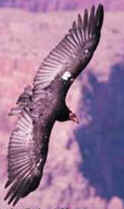 On
a February 16:
On
a February 16: 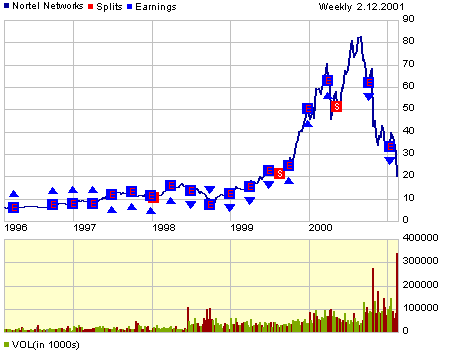 2001
Nortel Networks stock drops 33%
2001
Nortel Networks stock drops 33%
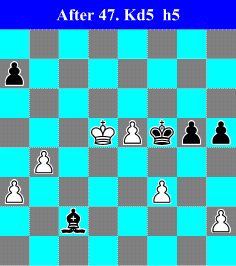
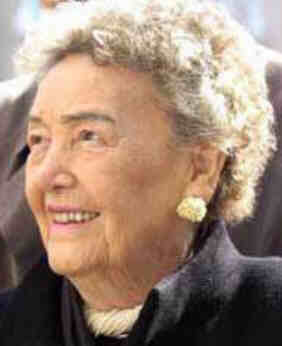
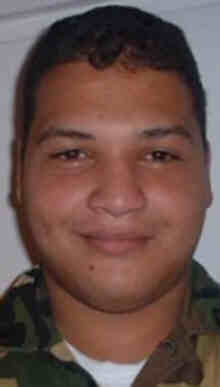
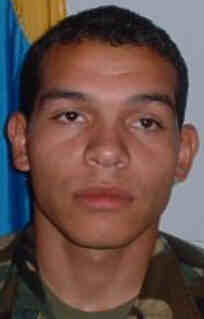

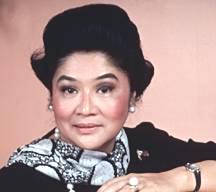 2001
Marikina City Footwear Museum in Manila, which displays
hundreds of pairs of shoes, is opened by Imelda Marcos, who had left 1200
pairs in the presidential palace when she and her late husband dictator
Ferdinand Marcos in disgrace fled the presidential palace on 25 February
25 1986 and were whisked off to exile by a US Air Force plane the following
day. Some of her shoes are in the museum.
2001
Marikina City Footwear Museum in Manila, which displays
hundreds of pairs of shoes, is opened by Imelda Marcos, who had left 1200
pairs in the presidential palace when she and her late husband dictator
Ferdinand Marcos in disgrace fled the presidential palace on 25 February
25 1986 and were whisked off to exile by a US Air Force plane the following
day. Some of her shoes are in the museum. 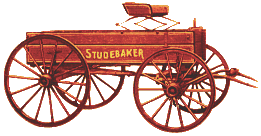 1852
H&C Studebaker company
1852
H&C Studebaker company